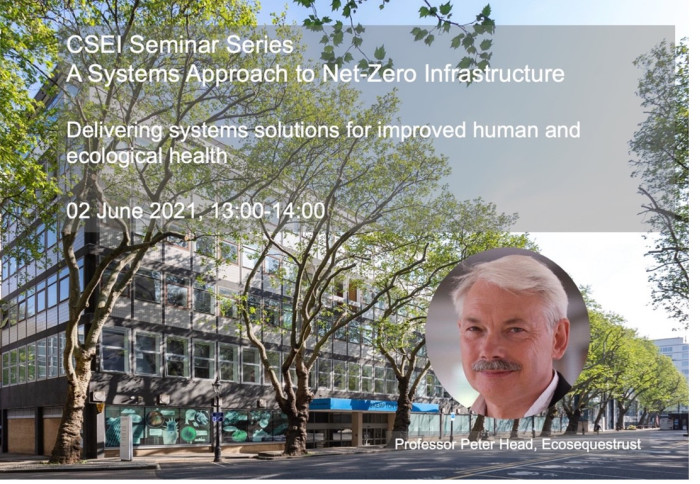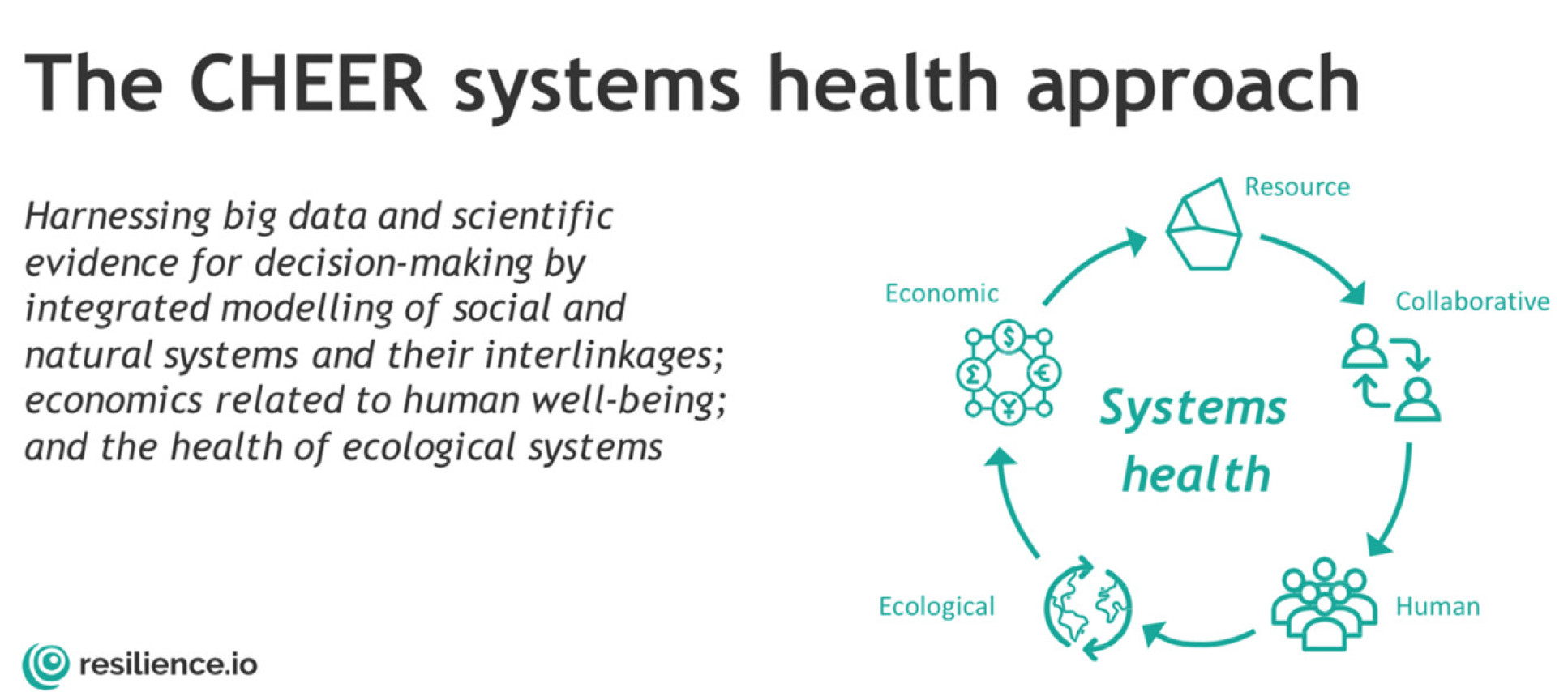CSEI Seminar Series – Professor Peter Head, CBE

CSEI Seminar Series – Professor Peter Head
The second event in our Seminar Series exploring how a systems approach can aid the transition to Net Zero infrastructure took place on 2 June 2021. The seminar hosted Professor Peter Head, a recognised world leader in major bridges, advanced composite technology and integrated systems planning for sustainable development in cities and regions, who was named by the Guardian Newspaper as one of 50 people that could ‘save the planet’.
Professor Head shared a 7-year journey on how to implement a systems approach which he has undertaken with The Ecological Sequestration Trust, a Charity which has brought together the world’s top scientists, engineers, economists, financiers, health, ecology and other specialists to create the www.resilience.io tool to help accelerate tackling climate change and inclusive regenerative development. Their Roadmap to 2030 aims to bring people from every part of society together in a collaborative laboratory or ‘collaboratory’ for a truly systemic approach.
Professor Head outlined the development and use of integrated systems CHEER (collaborative human, ecological, economic resource) modelling for improving decision making and connecting to sources of private impact capital. Specifically, Professor Head gave insights into how this approach can support decentralised nature-based solutions that communities can take forward, enabling them to find funded pathways to a more resilient way of life. This approach highly resonates with CSEI’s own research agenda, and builds on past research carried out with Imperial College London.
The presentation included details of the holistic and detailed modelling design undertaken together with two practical implementation case studies – one in Ghana and one in Kenya. As mentioned, the work is based on the CHEER approach which, besides more traditional parameters, also takes into account human and ecological health

Professor Head remarked that this flexible model is a tool that can help deliver a resilient Net Zero and flourishing whole society.
He then gave details of the two case studies where the integrated infrastructure modelling, with digital twins of infrastructure for risk-informed planning and design had been successfully implemented.
The lively Q&A session, chaired by CSEI co-Director Dr Ana Mijic, touched on the following main points:
- The role of modelling and how to find quality data.
- How to scale up the model and the role of governance.
- The main challenges of modelling across different infrastructure systems and across scales, from regional to earth.
- How academia can support and contribute to the work.
- Suitability of the approach in the assessment of infrastructure needs.
Professor Head’s final remarks were on the key role engineers can play to achieve a resilient, sustainable and equitable society where agent-based models connect up with the 'digital twin' type models.
To watch a recording of the event, click here.
To learn more about our research visit our Research Areas page.
To join us and help us make our research vision come to life, see our Get Involved page or email our Research and Engagement Manager Jeni Giambona, j.giambona@imperial.ac.uk.
Sign up for our Newsletter to be notified of our future events and research highlights.
Article text (excluding photos or graphics) © Imperial College London.
Photos and graphics subject to third party copyright used with permission or © Imperial College London.
Reporter
Jeni Giambona
Department of Civil and Environmental Engineering